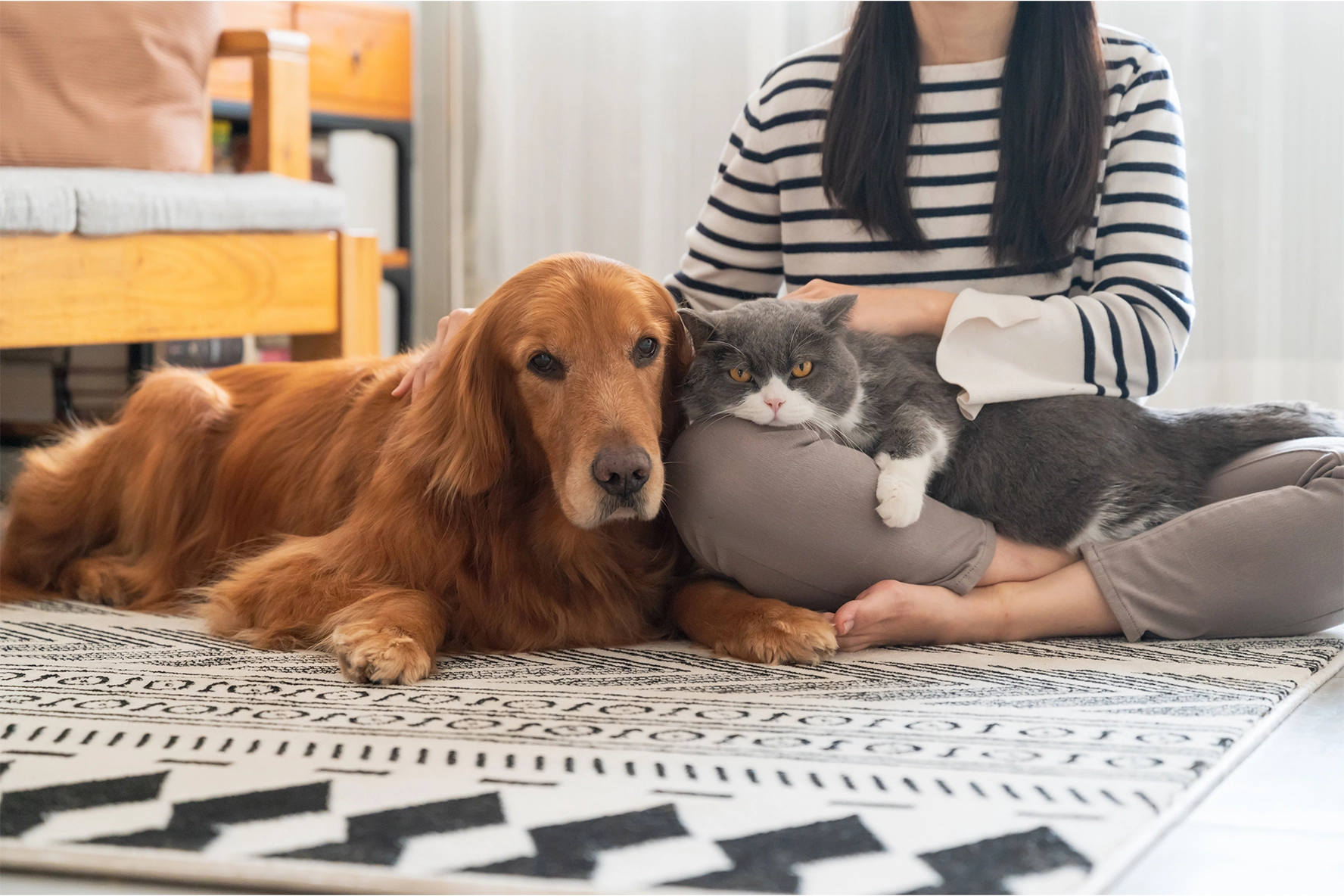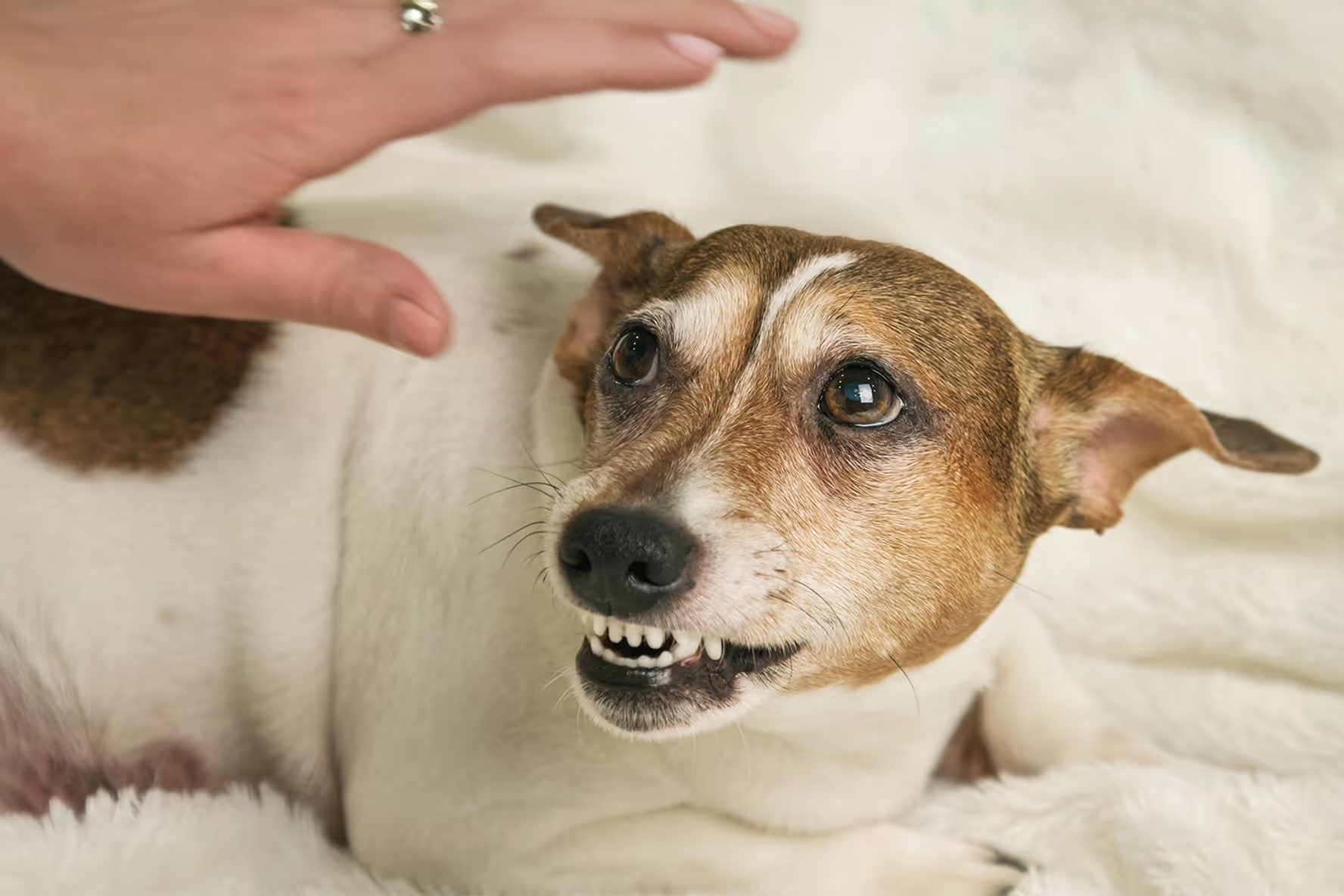
Many dog owners may ask, "Can dogs get cancer?" The unfortunate answer is yes, and this reality requires attention and awareness.
Did you know that nearly 50% of dogs over the age of 10 develop cancer at some point in their lives?1,3 This startling statistic highlights the importance of understanding canine cancer and its impact on our beloved pets.
Just like humans, dogs are susceptible to various types of cancer. Recognizing the signs and understanding the importance of early detection can make a significant difference in your dog's health outcomes. As a dog owner, being informed about canine cancer is crucial, even if all pet parents hope to never need the information. It not only prepares you for potential health challenges but also equips you to make the best decisions for your furry friend's care. Knowing when and how to seek the expertise of a "dog oncologist near me" or a "canine oncologist near me" can be life-saving. Let's delve into what canine cancer entails and how you can support your dog through this journey.
What is Cancer in Dogs?
Cancer in dogs, just like in people, is a condition where cells in the body grow uncontrollably, often forming masses or tumors. These abnormal cells can invade nearby tissues and spread to other parts of the body, disrupting normal bodily functions. As with humans, cancer can affect any part of a dog's body and varies greatly in severity and treatment options.
Types of Cancer in Dogs
There are several types of cancer commonly seen in dogs, each with its own characteristics and treatment approaches. Some of the most common types include:2
- Lymphoma: This cancer affects the lymphatic system, which is part of the immune system. Lymphoma can cause swelling in the lymph nodes and other organs.
- Mast Cell Tumors: These tumors originate in the mast cells, which play a role in the body's inflammatory and allergic response. They often appear as lumps on the skin but can also affect internal organs.
- Osteosarcoma: A type of bone cancer, osteosarcoma is particularly aggressive and commonly affects the long bones in the legs.
- Hemangiosarcoma: This is a cancer of blood vessels and can affect organs such as the spleen, liver, and heart.
- Melanoma: Often found in the mouth, skin, or digits, melanoma can be benign or malignant and varies widely in its aggressiveness.
For a more detailed exploration of some of the types of cancer that can affect dogs, you can check out our blog here.
Symptoms to Watch For
Early detection of cancer in dogs can significantly improve the chances of successful treatment. Dog owners should be vigilant and watch for the following symptoms:1
- Lumps or Bumps: Unusual growths on the skin that persist or grow over time.
- Unexplained Weight Loss: Sudden and significant weight loss without changes in diet or exercise.
- Lethargy: A noticeable decrease in energy levels and enthusiasm for activities.
- Changes in Appetite: Either a loss of appetite or increased eating without corresponding weight gain.
- Persistent Pain or Discomfort: Signs of pain, such as limping or reluctance to move.
- Changes in Bathroom Habits: Difficulty in urinating or defecating, or changes in frequency and consistency.
- Gastrointestinal upset: Vomiting or diarrhea which occurs multiple times in a few days or few months that is not explained by poor eating choices or allergies.
If you notice any of these symptoms in your dog, it is important to consult with your veterinarian as soon as possible. Early diagnosis and intervention by a canine oncologist can make a significant difference in the outcome for your beloved pet.
The Process of Diagnosing Canine Cancer
If you suspect your dog may have cancer, the first and most crucial step is to visit your primary veterinarian. Early detection is immensely important when it comes to managing and treating cancer effectively.
Initial Steps
When you notice symptoms such as those listed above, it’s vital to act quickly. Schedule an appointment with your vet as soon as possible. During the visit, provide a detailed account of your dog’s symptoms and any changes in behavior. Your vet will perform a physical exam and may palpate any lumps or swollen areas. If cancer is suspected, your vet will recommend further diagnostic tests to confirm the diagnosis and determine the type and extent of the cancer.
Diagnostic Tests
To accurately diagnose cancer, several tests may be required:
- Fine needle aspirates(FNA): This is a very non-invasive procedure that takes a small needle—like what is used to collect blood—and samples inside the tumor. This can be done on bumps on the outside of the body or tumors inside if the needle can reach them. These samples are then submitted for cytology and many tumors can be diagnosed this way.
- Biopsies: A biopsy involves taking a small sample of tissue from the suspected area for microscopic examination (histopathology). This test is critical for determining the type of cancer and its malignancy. This is often the gold standard for diagnosis.
- Blood Tests: Blood tests can provide information about your dog’s overall health and detect abnormalities that might suggest cancer. Specific tests can identify markers associated with certain types of cancer.
- Imaging: Various imaging techniques are used to visualize the internal structures of your dog’s body. X-rays can reveal tumors in bones and certain organs. Ultrasounds are useful for examining soft tissues and organs such as the liver and spleen. More advanced imaging, like MRI or CT scans, can provide detailed images of areas where cancer might be suspected, helping to determine the size, location, and spread of tumors.
Veterinary oncologists play a vital role in guiding you through the diagnosis and treatment journey, offering specialized care and support. To learn more about how veterinary oncologists can help you and your pet through your cancer journey, read our in-depth blog on the role of veterinary oncologists.
Treatment Options
When it comes to treating cancer in dogs, several options are available, each tailored to the type and stage of the cancer.
- Surgery is often the first line of treatment, particularly for tumors that are localized and accessible. The goal of surgery is to remove the cancerous tissue entirely. This option is most effective when the cancer hasn't spread to other parts of the body. Post-surgical recovery includes pain management and monitoring for potential recurrence.
- Chemotherapy involves using drugs to kill or slow the growth of cancer cells. This treatment is commonly used for cancers that are systemic, like lymphoma, or cancers that are aggressive and high risk of spread or have already spread to other oragans. While chemotherapy can have side effects, most dogs tolerate it much better than humans do.
- Radiation Therapy uses high-energy beams to target and destroy cancer cells. It's particularly useful for cancers that can't be surgically removed or there is high risk of regrowth. The therapy is usually administered over several sessions to minimize damage to surrounding healthy tissues. Side effects depend on the part of the body being treated but usually cause severe burns.
- Immunotherapy is the fourth pillar in oncology. This type of therapy harnesses the body’s immune system to recognize and destroy cancer causing cells or block the bad interactions of cancer cells. There are many different types of immunotherapies such as vaccines, interleukins, checkpoint inhibitors, and monoclonal antibodies.
- Alternative Therapies include options of holistic approaches, such as acupuncture and herbal supplements. These treatments can complement traditional methods with the goal of improving the dog's quality of life.
Each treatment plan is tailored to the individual dog’s needs, aiming to maximize effectiveness while minimizing discomfort and side effects. Some treatments may be highly effective for one form of cancer but not make a dent in another, that’s why it’s so important to have an oncologist who has extensive training to design the best therapy for your dog and family. Doing your own online research may help you feel more secure through the process, but knowing your veterinary oncologist will have your back is a big help as well.
Finding a Canine Oncologist
When dealing with canine cancer, finding a specialist is crucial. A veterinary oncologist has the expertise and experience to diagnose, treat, and manage cancer in animals. These specialists are familiar with the latest treatments and technologies, ensuring your pet receives the best possible care.
To find a reputable "dog oncologist near me" or "canine oncologist near me," start by asking your primary veterinarian for recommendations. They can refer you to a trusted specialist within your area. Additionally, online directories like the American College of Veterinary Internal Medicine (ACVIM) and VetSpecialists.com provide listings of board-certified oncologists. These directories allow you to search by location, making it easier to find a qualified professional nearby.
Choosing the right oncologist is a significant decision in your pet’s cancer journey. For more guidance on selecting the best oncologist for your needs, read our detailed blog on finding the right veterinary oncologist. This resource will provide you with the tools and knowledge to make an informed choice, ensuring your pet receives the best care possible.


